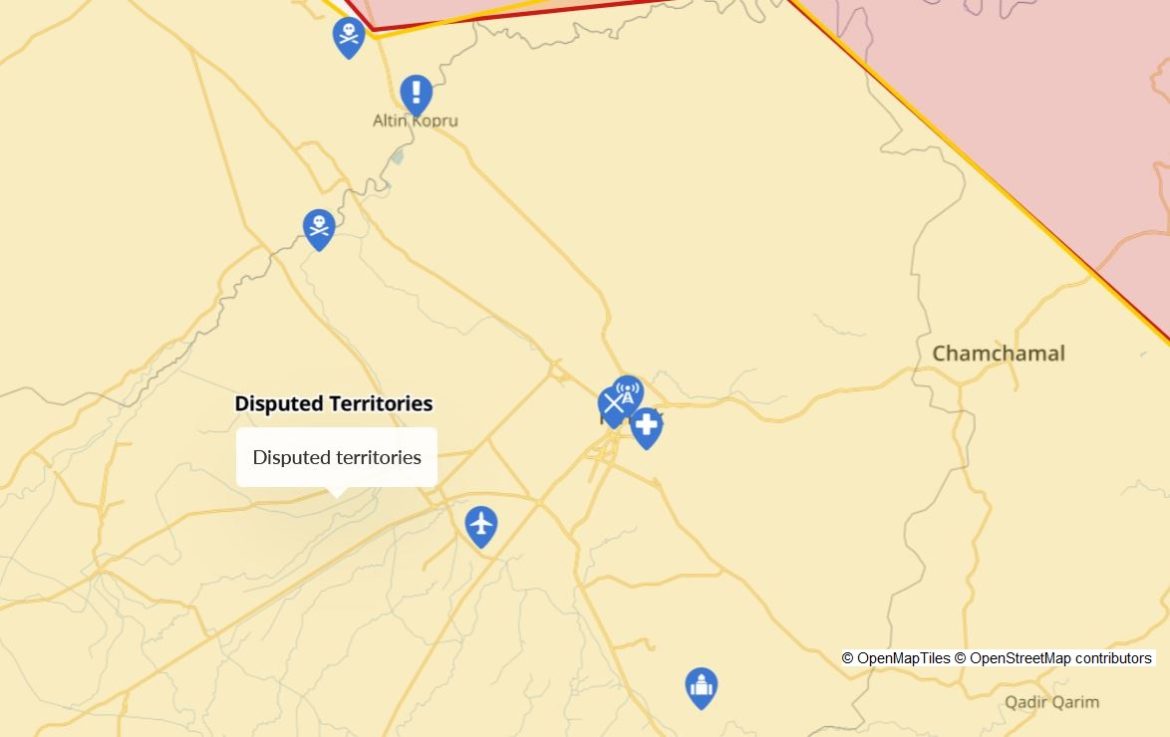1.1K
Kirkuk
- The Integrity Commission announced the seizure of several corruption dossiers in the governorate, estimated to be three billion, two hundred thirty-nine million Iraqi dinars (more than 200 million USD). The Integrity Commission said the corruption cases by Kirkuk’s administration included the construction of apartment complexes and paving roads. Further, dozens of people protested the demolishing of their homes built on government-owned lands in the Askari neighborhood. Millions of homes have been built illegally in Iraq since 2003, including many by senior officials.
- The Department of Agriculture announced the decrease in cotton production over the last four years since the federal government refuses to buy it from farmers. According to the agricultural department director, Zuhair Ali, Kirkuk was a leading province in the industry, and farmers used 200,000 acres for cotton, but that number has since dropped to 50,000 acres.
- The interior ministry launched an investigation against three high-ranking Turkmen police officers for conducting an official salute during an ultra-nationalist Turkish anthem used by the Turkmen Front in Pirde, Kirkuk province. The officers participated in a ceremony with Turkey’s ambassador Ali Riza alongside several Turkmen politicians and activists signaling racist gestures. Iraqi laws prevent military and police officers from conducting official salutes to non-Iraqi anthems. The provocative visit of the Turkish ambassador to Iraq raised anger among the public.
- In a press conference, the director of the Archeological Department, Raed Augla warned that nearly 500 archeological sites are unprotected. Augla said the sites are facing destruction and theft due to a lack of security, and his department needs approximately 1,000 guards to secure the sites and prevent further damage. On a different note, Agula said, a Turkish company is “helping” restore the ancient graves of prophets and graves of Ottoman officers in Kirkuk’s citadel.
- ISIS (Da’esh) continues to target security forces and the infrastructure in the disputed territories. On Friday, July 16th, Da’esh terrorists shot a Kurdish family inside a vehicle after driving into a fake security checkpoint near Qarabag village of Pirde district. As a result, one person was killed, and two others were severely injured. On the same night, Da’esh assaulted the 8th division of the Iraqi army stationed near Dibis district resulting in the death of four soldiers and the injury of three others. Further, after repeated attacks on the power towers, the federal police announced the launch of drones for surveillance in an attempt to put an end to Da’esh attacks that cause a severe power shortage. Meanwhile, the security cell in Kirkuk announced the arrest of several Da’esh members in the city, among those a suicidal terrorist. On Sunday, July 18th, four Da’esh hideouts were discovered near the Ryad sub-district, including the seizure of drones and light weapons.
- The Kirkuk health department warned that the spread of the Delta variant of the coronavirus has spread in the province and about 250 cases are recorded each day. The health department reopened temporary clinics for Covid patients after both main hospitals are used at 80% capacity. The police department gave its employees and officers 48 to get vaccinated; otherwise, they will not receive their salaries.
Khanaqin
- Organizers of recent anti-government protests announced the restart of the demonstrations after Eid al Adha due to the continuous lack of basic service. On July 4, protestors shut down the main route between Iran and Iraq, disabling overland movement between the two countries. Lack of water and electricity and unemployment sparked protests in the past months.
- Similar to the rest of the country, Covid cases have climbed dramatically in the past weeks. Khanaqi’s main hospital operates at 90%, and health officials warned of an “uncontrollable situation.”
- The Integrity Commission announced corruption in fuel supply to the federal police. The commission said the federal police in the town owned 213 vehicles, but it filed 303 vehicles and later sold 32,000 liters a month to private gas stations. Fuel shortage across the region is caused by smugglers and corruption in government departments, mainly in the fuel distribution office.

